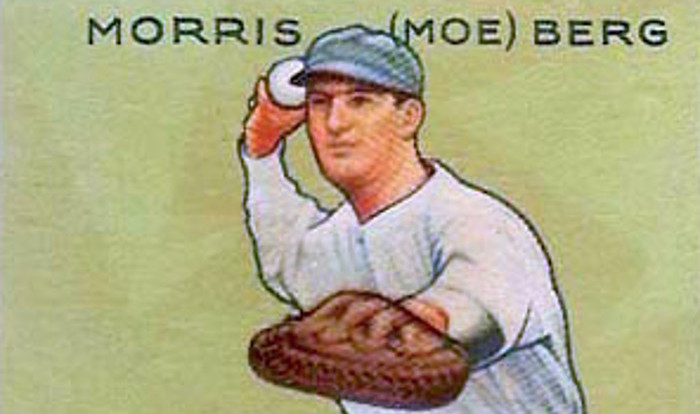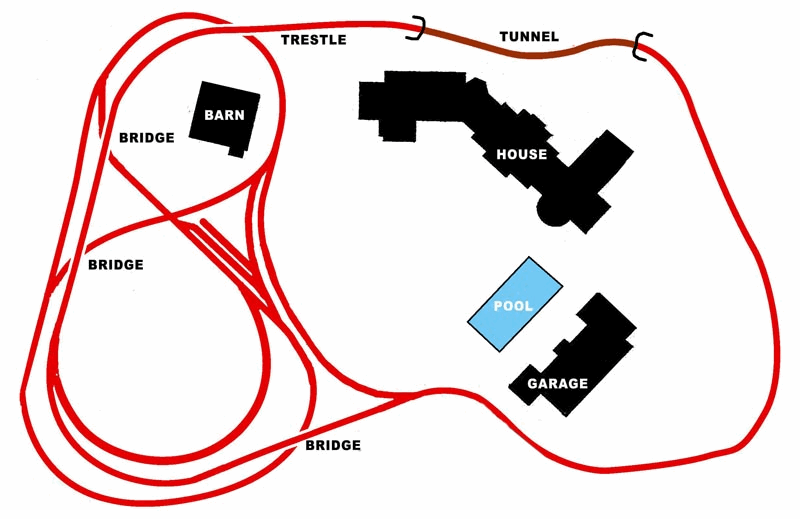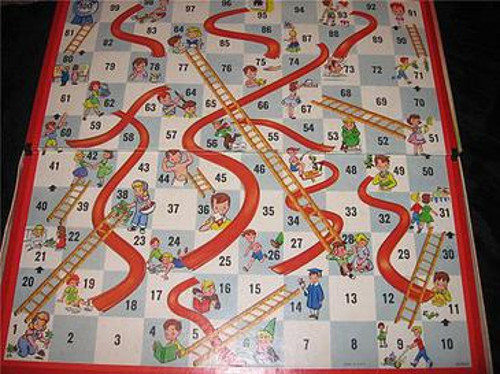For a cocktail party scene in the 1966 Star Trek episode “The Conscience of the King,” composer Joseph Mullendore wrote a subdued version of the series’ main title … which means that the Star Trek theme music exists in the Star Trek universe.
Entertainment
Stirred, Not Shaken
The 1967 version of Casino Royale, starring David Niven, set an unlikely milestone: Its soundtrack album became famous among audio purists for the quality of its sound.
“The legend is that the original master tape had ‘mad’ levels on it,” audiophile Harry Pearson told the New York Times in 1991. “Once the meters pass zero, it means that you’re saturating the tape and running the risk of distortion. On ‘Casino,’ they used a supposedly very fancy grade of tape, and the engineers really pushed it, so the meters were typically running deep into the red — plus one, plus two, plus three, plus four.” The result is an extremely wide dynamic range.
A particular high point is Dusty Springfield’s “The Look of Love” (Track 2). Springfield recorded her vocal in a “tiny isolation booth, so on a really good system, you can hear her voice emerging from what sounds like a little hole in space. She’s not part of the general orchestral acoustic, and once your system gets to a certain point, you can hear that.”
Pearson said the soundtrack came to serve as a benchmark at Absolute Sound, the audiophile bible he founded in 1973. “Whenever we get a piece of equipment that we think is setting new records, out comes ‘Casino,'” he said. “The better your system gets, the more you get out of that album.”
(Thanks, Allen.)
Podcast Episode 237: The Baseball Spy

Moe Berg earned his reputation as the brainiest man in baseball — he had two Ivy League degrees and studied at the Sorbonne. But when World War II broke out he found an unlikely second career, as a spy trying to prevent the Nazis from getting an atomic bomb. In this week’s episode of the Futility Closet podcast we’ll follow Berg’s enigmatic life and its strange conclusion.
We’ll also consider the value of stripes and puzzle over a fateful accident.
Inspiration
In planning the lighting and atmosphere for Skull Island in 1933’s King Kong, animator Willis O’Brien relied heavily on Gustave Doré. In 1930 special effects expert Lewis W. Physioc had said, “If there is one man’s work that can be taken as the cinematographer’s text, it is that of Doré. His stories are told in our own language of ‘black and white,’ are highly imaginative and dramatic, and should stimulate anybody’s ideas.”
“The Doré influence is strikingly evident in the island scenes,” write Orville Goldner and George E. Turner in The Making of King Kong (1976) (click to enlarge). “Aside from the lighting effects, other elements of Dore illustrations are easily discernible. The affinity of the jungle clearings to those in Dore’s ‘The First Approach of the Serpent’ from Milton’s ‘Paradise Lost’ [left], ‘Dante in the Gloomy Wood’ from Dante’s ‘The Divine Comedy,’ ‘Approach to the Enchanted Palace’ from Perrault’s ‘Fairy Tales’ [right] and ‘Manz’ from Chateaubriand’s ‘Atala’ is readily apparent. The gorge and its log bridge bear more than a slight similarity to ‘The Two Goats’ from ‘The Fables’ of La Fontaine, while the lower region of the gorge may well have been designed after the pit in the Biblical illustration of ‘Daniel in the Lion’s Den.’ The wonderful scene in which Kong surveys his domain from the ‘balcony’ of his mountaintop home high above the claustrophobic jungles is suggestive of two superb Doré engravings, ‘Satan Overlooking Paradise’ from ‘Paradise Lost’ and ‘The Hermit on the Mountain’ from ‘Atala.'”
Good and Ugly
Technical but interesting: Designer Iginio Lardani’s title sequence for The Good, the Bad and the Ugly contains only one error, and it’s in Lardani’s own credit (2:33 above).
“[A]n ‘error’ specific to optical printing caused by improper loading of the footage and mask being composited — Newton’s rings — appears in his title card alongside the text stating ‘TITLES | LARDANI,” notes film historian Michael Betancourt in Semiotics and Title Sequences (2017).
This appears to be an inside joke meant for other title designers. According to his son, Lardani had complete freedom in creating the design. Betancourt writes, “Recognizing this specific ‘error’ in the card stating ‘TITLES LARDANI’ depends on technical knowledge of the optical printing process. … given the technical perfection in the rest of the sequence, it is not just a ‘beginner’s mistake,’ but implies a conscious choice to include this compositing error in the design.”
“It is a joke only comprehensible (even recognizable) by an audience that recognizes the Newton’s rings and understands what they are — an error in the optical printing; this knowledgeable audience specifically includes title sequence designers rather than the general public. … Because it is specifically a specialized, technical mistake, its recognition will be severely limited to his peers — suggesting that they are the ones being addressed by it.”
Set Dressing
William Wellman vowed that his 1927 dogfight movie Wings would contain no stock footage or studio fakery. But after assembling his own planes and film crew, he kept them resolutely on the ground for weeks. When Paramount asked what was missing, he gave them a bewildering answer: clouds.
“Motion on the screen is a relative thing,” he said. “A horse runs on the ground or leaps over fences or streams. We know he is going rapidly because of his relation to the immobile ground.” But a plane alone in the sky may produce no sense of motion at all unless there are clouds around it — and the skies above Wellman’s San Antonio shooting location remained stubbornly clear.
Producer Jesse Lasky later wrote, “There were days on end of perfect sunshine, and our $200-a-week director wouldn’t turn a camera, while overhead mounted at thousands of dollars a day. I confess that we were about ready to yank him off the picture and replace him with someone who would be more amenable.”
In the end they were glad they waited — when the clouds arrived, Wellman’s cameramen took off, and Wings won the first Academy Award for Best Picture.
In a Word
velitation
n. a minor dispute or contest
devel
v. to beat or thrash
herile
adj. pertaining to a master
satisdiction
n. saying enough
Somebody once asked pool hustler Don Willis how good Glen “Eufaula Kid” Womack was.
Willis said, “I never saw him play.”
“What do you mean, you never saw him play? I heard you just beat him out of a lot of money.”
“I did,” Willis said, “but he never got to shoot.”
(From Robert Byrne’s Wonderful World of Pool and Billiards, 1996.)
The Carolwood Pacific Railroad

Walt Disney loved trains. In 1947, when he showed off his Lionel set to animators Ward Kimball and Ollie Johnston, they revealed that they had ridable sets in their backyards. So two years later, when Disney bought 5 acres in Los Angeles, he set about building his own ridable railroad, 2,615 feet long and completely surrounding the house. To placate his wife, he named the locomotive after her and added an S-curve tunnel to avoid her garden.
Disney retired the train in 1953 when a derailment left a 5-year-old girl with steam burns, but he credited the Carolwood Pacific Railroad with inspiring Disneyland, which is encircled today by a narrow-gauge steam railroad that draws 6.6 million passengers a year.
Podcast Episode 226: The Great Match Race

America’s first national sports spectacle took place in 1823, when the North and South sent their best horses for a single dramatic race that came to symbolize the regional tensions of a changing nation. In this week’s episode of the Futility Closet podcast we’ll tell the story of the Great Match Race, which laid the foundations of modern American thoroughbred racing.
We’ll also ponder a parasite’s contribution to culture and puzzle over a misinformed criminal.
For What It’s Worth

Based on an ancient Hindu game, Snakes and Ladders (Chutes and Ladders in ophidiophobic America) is at heart a morality lesson: As you progress by die roll from square 1 to square 100 and spiritual enlightenment, your way is complicated by virtues and vices. Landing on a snake (or chute) will send you back to an earlier square, and landing on a ladder will send you ahead to a later one. Each of these shortcuts is associated with a precept — “Carelessness” leads to “Injury,” “Study” leads to “Knowledge,” and so on.
In 1993 University of Michigan mathematician S.C. Althoen and his colleagues considered the game as a 101-state absorbing Markov chain. The shortest possible game lasts seven moves, the longest is infinite, and according to their calculations the expected number of moves in the Milton Bradley version of Chutes and Ladders is
which is about 39.2.
Troublingly, the average length of a game without snakes or ladders (just the 100-square board) is almost exactly 33 moves: “Apparently the snakes lengthen the game more than the ladders shorten it.” And, while adding a ladder will generally shorten the game and adding a snake will lengthen it, this isn’t always the case: In the original game, adding a ladder from square 79 to square 81 lengthens the expected playing time by more than two moves (to about 41.9), since it increases the chance of missing the important ladder leading from square 80 to square 100. And adding a snake from square 29 to square 27 shortens the game by more than a move (to about 38.0), since it offers a second chance at the long ladder from 28 to 84.
So, arguably, we might advance more quickly through life with more vice and less virtue.
(S.C. Althoen, L. King, and K. Schilling, “How Long Is a Game of Snakes and Ladders?”, Mathematical Gazette 77:478 [March 1993], 71-76.)

